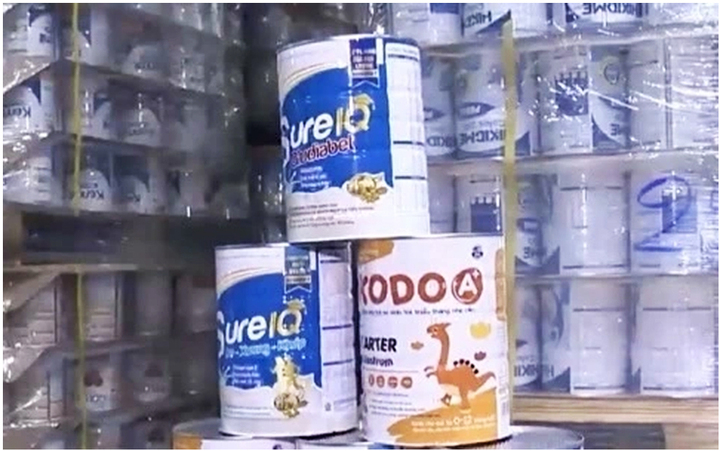
Initial investigation results determined that the quality indicators of some powdered milk substances were below 70% of the announced level - enough basis to determine that they are fake.
In-depth testing will be needed to assess the impact and influence of these products on the health of users. But from the perspective of law and state management, what I am interested in here is what mechanism is in place to protect consumers, especially children, pregnant women and sick people, from fake milk in particular and fake nutritional foods in general.
The production of food for children, the elderly and pregnant women in many countries is strictly managed, stemming from natural characteristics, when the health and immune system of these subjects cannot be compared with normal people. Many countries apply aggravating circumstances to crimes related to harming the health and development of this group. However, Article 193 of the Vietnamese Penal Code has not yet added the element of "producing and trading food for the purpose of specifically targeting vulnerable groups such as children, pregnant women, sick people and the elderly" to the list of aggravating circumstances when handling the crime of producing and trading in fake food products.
Another question that causes indignation in the shocking announcement above by the Ministry of Public Security is why a fake milk chain that has been rampant in the market for 4 years has not been discovered. The important reason is the gap in state management.
In addition to the loopholes in monitoring the production process, the diversity of distribution channels is also a major challenge in terms of state management. Currently, fake food producers and traders are stepping up their activities on social networking platforms and e-commerce platforms to make illegal profits and avoid specialized agencies. They take advantage of consumers' trust and the influence of celebrities, creating massive advertising campaigns and exaggerating product uses. Cyberspace is too vast to be comprehensively managed. Therefore, it is necessary to consider adding the circumstance of using social networks and e-commerce platforms in addition to the circumstance of organization and professionalism as an aggravating factor for the crime of producing and trading in fake food and foodstuffs prescribed in Article 193 and the crime of deceiving customers prescribed in Article 198 of the Penal Code.

Comment
Print